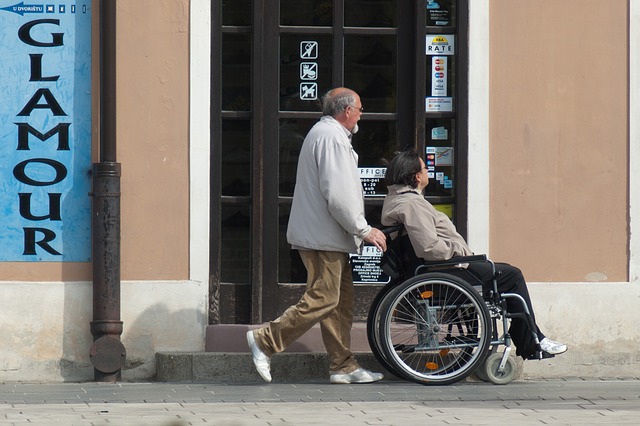Senior government officials, policymakers, civil society and academia from over 30 countries across Asia-Pacific gathered in Beijing to accelerate commitments towards improving the rights of the 690 million disabled persons across the region, and beyond.
The high-level meeting reviewed progress made in the implementation of the Incheon Strategy for Persons with Disabilities and the Asian and Pacific Decade of Persons with Disabilities (2013-2022).
Chinese President Xi Jinping’s said, “The Asian and Pacific Decade of Person’s with Disabilities was initiated by China in Beijing. It has greatly propelled Asia-Pacific countries and regions to learn from each other, and set an example of cooperation to benefit persons withdisabilities.”
In his message to the meeting, United Nations Secretary-General Mr. António Guterres said, “I commend the Asia-Pacific region for being the first in the world to adopt a regional framework to address the issues of disability-inclusive development. The Member States in the region and ESCAP have demonstrated to the world the panorama of possibilities that can be opened for persons with disabilities.”
One in every six persons in Asia and the Pacific has a disability, yet they are amongst the most marginalised groups in society. The difference in poverty rates between persons with disabilities and the overall population, usually range between 4 to 21 per cent. Of concern was that around 50 per cent of children with disabilities do not transition from primary to secondary education and as a consequence, persons with disabilities are two to six times less likely to be employed compared to their peers.
Other challenges include that persons with disabilities continued to be under-represented in political structures and decision-making processes, and that with more than half of the region’s persons with disabilities being women, their access to development opportunities are constrained.
“The challenges are significant but not insurmountable,” said United Nations Under-Secretary-General and Executive Secretary of ESCAP Dr. Shamshad Akhtar. “They call for renewing our commitment to the Incheon strategy and driving forward its implementation with renewed vigour. Among others, persons with disabilities could benefit from government’s bolstering their education and employment opportunities, increasing their representation in political structures and processes, strengthening national coordination mechanisms, and improving statistics.”
She highlighted that regional cooperation is vital for the implementation of Incheon Strategy and that ESCAP’s role as the UN’s think tank has been to define the pathways for disability inclusive development. “Our inter-governmental platforms enable policymakers to take stock and push forward their ambitions. Our technical support has been used by countries and partners to help them implement policies and programmes to address the multiple aspects of disability, from policy to education to outreach.”
Underscoring the importance of the synergies between the Incheon Strategy and 2030 Agenda for Sustainable Development, Dr. Akhtar added, “In our quest for inclusive growth, we must respond to the call of the 2030 Agenda to leave no one behind. Supporting and including persons with disabilities will be fundamental to translating this ambitious agenda into reality.”
As part of its commitment to ensuring that participants are provided with concrete and meaningful figures to assess the implementation of the Incheon Strategy, ESCAP launched a new report at the meeting which showed that social protection measures do not meet the needs of persons with disabilities, with coverage in disability benefit programmes as little as 28 per cent in some countries.
The report entitled, ‘Building Disability‑Inclusive Societies in Asia and the Pacific’ indicates that persons with disabilities continue to face extreme poverty and are up to six times more likely to be unemployed. Their participation in decision-making is also low, with only 0.4 per cent representation in national parliaments across the region.
A major concern highlighted in the study was that women and girls continue to experience additional barriers to participation across many sectors of society, and the inclusion of disability perspectives in disaster risk reduction falls short, with only eight countries having relevant strategies. The availability of disability data also remains a challenge across Asia-Pacific.
Thank you for reading the story until the very end. We appreciate the time you have given us. In addition, your thoughts and inputs will genuinely make a difference to us. Please do drop in a line and help us do better.
Regards,
The CSR Journal Team

